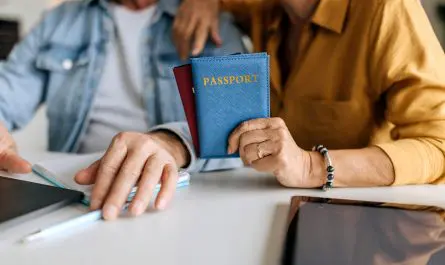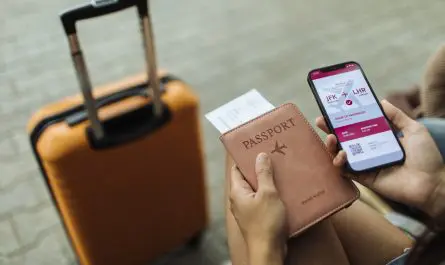Traveling the world is a dream many people share, but the costs associated with international travel can often make it seem out of reach. However, with careful planning and smart strategies, you can explore new destinations without breaking the bank. This guide is designed for the savvy US consumer who wants to maximize their travel experiences while minimizing expenses. We will cover nine essential tips to help you save money on your next trip, ensuring that every dollar spent is well-invested in unforgettable experiences.
From booking flights and accommodations to utilizing loyalty programs and finding budget-friendly dining options, these tips provide a comprehensive approach to budget travel. You’ll learn how to plan ahead, be flexible with travel dates, and take advantage of off-peak seasons to secure the best deals. Additionally, we’ll explore the benefits of packing smart, using public transportation, and considering travel insurance to protect against unexpected costs. By incorporating these strategies, you can turn your travel dreams into reality while keeping your finances in check.

Tip 1: Plan Ahead
Planning ahead is crucial for saving money on travel expenses. By booking flights and accommodations well in advance, you can secure lower prices and better options. Here are key strategies:
- Book Early: Aim to book flights at least 3-6 months ahead to get the best rates.
- Use Price Comparison Tools: Websites like Skyscanner, Google Flights, and Kayak help find the cheapest flights.
- Monitor Prices: Set up fare alerts to track price drops and grab deals when they happen.
- Research Accommodations: Compare prices across different platforms like Booking.com, Airbnb, and hotels’ own websites.
- Create a Budget: Plan for all travel expenses including activities and meals to avoid overspending.
Tip 2: Be Flexible with Dates and Destinations
Flexibility can lead to significant savings when traveling. Consider adjusting your travel dates or exploring alternative destinations to find better deals:
- Travel Off-Peak: Avoid peak seasons and weekends for lower prices on flights and accommodations.
- Explore Alternative Destinations: Lesser-known cities or countries often offer cheaper travel options and unique experiences.
- Use Fare Comparison Tools: Apps like Hopper and Skyscanner compare prices across various dates and destinations.
- Set Fare Alerts: Receive notifications when flight prices drop to secure the best deals.
Tip 3: Use Loyalty Programs and Travel Rewards

Loyalty programs and travel rewards can help you save money on future trips and earn perks like free flights or hotel stays. Here’s how to maximize benefits:
- Join Frequent Flyer Programs: Earn miles for flights that can be redeemed for future travel.
- Sign Up for Hotel Rewards: Loyalty programs offer points for each stay, leading to free nights or upgrades.
- Use Travel Credit Cards: Earn points on everyday purchases that can be used for travel expenses.
- Maximize Sign-Up Bonuses: Some credit cards offer large sign-up bonuses, providing immediate benefits.
- Combine Points and Miles: Use a combination of miles, points, and cash to maximize savings on bookings.
Tip 4: Opt for Budget Accommodations
Choosing budget-friendly accommodations can significantly reduce your travel expenses without sacrificing comfort:
- Consider Hostels: Shared dormitories or private rooms at hostels offer affordable lodging options.
- Use Airbnb: Renting apartments or homes often costs less than hotels and provides a more local experience.
- Look for Budget Hotels: Many chains offer clean, basic rooms at lower prices, especially when booked in advance.
- Check Reviews: Ensure accommodations are safe and suitable by reading recent reviews from other travelers.
- Compare Amenities: Determine which amenities (like free breakfast or Wi-Fi) are essential to save money.
Tip 5: Travel During Off-Peak Seasons
Traveling during off-peak seasons can lead to significant savings on flights, accommodations, and attractions:
- Identify Off-Peak Times: Research the best times to visit your destination when prices are lower and crowds are smaller.
- Enjoy Quieter Attractions: Experience popular attractions with fewer tourists during non-peak times.
- Negotiate Prices: Some hotels and tour operators may offer discounts during quieter periods to attract visitors.
- Take Advantage of Sales: Airlines and travel companies often run sales during off-peak seasons, offering discounted rates.
- Plan Ahead: Book early for off-peak travel to secure the best deals and ensure availability.
Tip 6: Pack Smart and Light
Packing efficiently can save you money on baggage fees and make traveling more convenient:
- Check Airline Policies: Understand baggage allowances and fees to avoid unexpected charges.
- Pack Versatile Clothing: Choose clothing items that can be mixed and matched for different outfits.
- Use Packing Cubes: Organize your belongings to maximize space and keep items neat during travel.
- Consider Laundry Options: Pack items that can be easily washed or find local laundromats to avoid packing too much.
- Bring Essentials Only: Limit yourself to necessities and avoid overpacking to save space and weight.
Tip 7: Save on Food and Drinks

Eating on a budget while traveling can help you save money without missing out on local cuisine:
- Explore Local Markets: Buy fresh produce, snacks, and beverages at markets for affordable meals.
- Cook Your Own Meals: Book accommodations with kitchen facilities to prepare your own food.
- Dine Off the Beaten Path: Avoid tourist areas and opt for local eateries where prices tend to be lower.
- Research Happy Hours: Enjoy discounted drinks and appetizers during happy hour specials at restaurants and bars.
- Pack Snacks: Carry snacks like granola bars and fruit to curb hunger between meals and avoid impulse purchases.
Tip 8: Use Public Transportation
Using public transportation is often cheaper than renting a car or taking taxis, especially in urban areas:
- Research Transit Options: Learn about buses, trains, and subways available at your destination.
- Purchase Passes: Buy daily or weekly transit passes for unlimited rides and potential savings.
- Walk or Bike: Explore cities on foot or by bike to save money and experience local culture up close.
- Use Ride-Sharing Apps: Compare prices for ride-sharing services to taxis and public transit for convenience and cost-effectiveness.
- Plan Routes: Use maps and apps to plan efficient routes and avoid unnecessary expenses.
Tip 9: Consider Travel Insurance
Travel insurance provides financial protection against unexpected events that could disrupt your trip or incur additional costs:
- Understand Coverage: Review policy details to understand what is and isn’t covered, including medical emergencies, trip cancellations, and lost luggage.
- Compare Plans: Research different insurance providers to find policies that meet your needs and budget.
- Check Credit Card Coverage: Some credit cards offer travel insurance as a cardholder benefit, potentially saving you money on additional policies.
- Purchase Early: Buy travel insurance shortly after booking your trip to maximize coverage, including pre-existing conditions and cancellation benefits.
- Read Reviews: Look for customer reviews and testimonials to gauge the reliability and responsiveness of insurance providers in real-life situations.
Additional Tips for Budget Travel

- Use Travel Apps: Download apps like TripIt for organizing travel plans, Splitwise for sharing expenses, and Google Maps for navigating new cities.
- Seek Free Activities: Look for free walking tours, museum days, and local events to experience culture without spending money.
- Travel in Groups: Sharing costs for accommodations and transportation can significantly reduce individual expenses.
- Stay Flexible: Be open to last-minute deals or unexpected opportunities that can save money on flights and accommodations.
- Research Visa Requirements: Avoid last-minute visa fees by understanding entry requirements and applying in advance if necessary.
- Pack Essentials: Carry reusable water bottles, travel-sized toiletries, and a universal adapter to save on purchasing these items abroad.
- Shop Smart: Purchase souvenirs and gifts at local markets or duty-free shops to find unique items at lower prices.
- Use Student or Senior Discounts: If applicable, take advantage of discounts available for students, seniors, or military personnel.
- Monitor Currency Exchange Rates: Exchange money at favorable rates or use credit cards with no foreign transaction fees to save on currency conversion costs.
- Travel Slowly: Spending more time in fewer destinations allows you to immerse yourself in local culture and reduces transportation costs.
Conclusion
Budget travel doesn’t mean compromising on quality or missing out on memorable experiences. By implementing these nine essential tips and additional strategies, you can maximize your savings while exploring the world. Planning ahead, being flexible with dates and destinations, and using loyalty programs are just a few ways to stretch your travel budget without sacrificing comfort or adventure.
Remember, the key to successful budget travel lies in preparation and resourcefulness. Whether you’re exploring bustling cities, relaxing on tranquil beaches, or trekking through scenic landscapes, these tips will help you navigate the complexities of travel expenses effectively. By taking advantage of early booking discounts, off-peak travel opportunities, and budget-friendly accommodations, you can enjoy incredible journeys without financial stress.
Embrace the thrill of discovering new cultures, savoring local cuisines, and creating lifelong memories—all while staying within your budget. With careful planning and a sense of adventure, your next travel adventure can be both affordable and unforgettable. Start planning today and embark on your budget-friendly journey around the globe!



